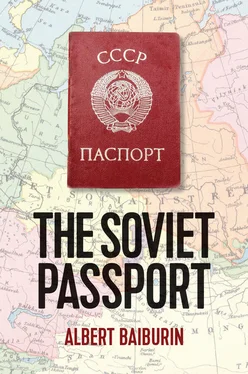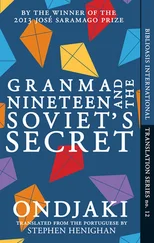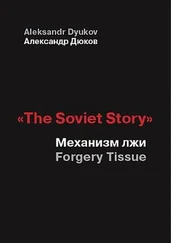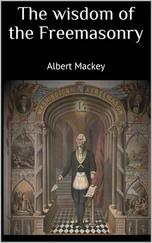157 147
158 148
159 149
160 150
161 151
162 152
163 153
164 154
165 155
166 156
167 157
168 158
169 159
170 160
171 161
172 162
173 163
174 164
175 165
176 166
177 167
178 168
179 169
180 170
181 171
182 172
183 173
184 174
185 175
186 176
187 177
188 178
189 179
190 180
191 181
192 182
193 183
194 184
195 185
196 186
197 187
198 188
199 189
200 190
201 191
202 192
203 193
204 194
205 195
206 196
207 197
208 198
209 199
210 200
211 201
212 202
213 203
214 204
215 205
216 206
217 207
218 209
219 210
220 211
221 212
222 213
223 214
224 215
225 216
226 217
227 218
228 219
229 220
230 221
231 222
232 223
233 224
234 225
235 226
236 227
237 228
238 229
239 230
240 231
241 232
242 233
243 234
244 235
245 236
246 237
247 238
248 239
249 240
250 241
251 242
252 243
253 244
254 245
255 246
256 247
257 248
258 249
259 250
260 251
261 252
262 253
263 254
264 255
265 256
266 257
267 258
268 259
269 260
270 261
271 262
272 263
273 264
274 265
275 266
276 267
277 268
278 269
279 270
280 271
281 272
282 273
283 274
284 275
285 276
286 277
287 278
288 279
289 280
290 281
291 282
292 283
293 284
294 285
295 286
296 287
297 288
298 289
299 290
300 291
301 292
302 293
303 294
304 295
305 296
306 297
307 298
308 299
309 300
310 301
311 302
312 303
313 304
314 305
315 306
316 307
317 308
318 309
319 310
320 311
321 312
322 313
323 314
324 315
325 316
326 317
327 318
328 319
329 320
330 321
331 322
332 323
333 324
334 325
335 326
336 327
337 328
338 329
339 330
340 331
341 332
342 333
343 334
344 335
345 336
346 337
347 338
348 339
349 340
350 341
351 342
352 343
353 344
354 345
355 346
356 347
357 348
358 349
359 350
360 351
361 352
362 353
363 354
364 355
365 356
366 357
367 358
368 359
369 360
370 361
371 416
372 417
373 418
374 419
375 420
376 421
377 422
378 423
379 424
380 425
381 426
382 427
383 428
384 429
385 430
386 431
387 432
388 433
389 434
390 435
391 436
392 437
393 438
394 439
395 440
396 441
397 442
398 443
399 444
400 445
401 446
402 447
403 448
404 449
405 450
406 451
407 452
The publication of this series was made possible with the support of the Zimin Foundation
Albert Baiburin, The Soviet Passport
Vladimir Bibikhin, The Woods
Alexander Etkind, Nature’s Evil
Boris Kolonitskii, Comrade Kerensky
Sergei Medvedev, The Return of the Russian Leviathan
Maxim Trudolyubov, The Tragedy of Property
The Soviet Passport
The History, Nature and Uses of the Internal Passport in the USSR
Albert Baiburin
Translated by Stephen Dalziel
polity
Originally published in Russian as СОВЕТС К ИЙ ПАСПОРТ. история — структура — практики . Copyright in the original Russian-language edition © European University at St. Petersburg, 2017.
Copyright © Albert Baiburin 2021
This English translation © Polity Press 2021
This English edition first published in 2021 by Polity Press

This book was published with the support of the Zimin Foundation.
Polity Press
65 Bridge Street
Cambridge CB2 1UR, UK
Polity Press
101 Station Landing
Suite 300
Medford, MA 02155, USA
All rights reserved. Except for the quotation of short passages for the purpose of criticism and review, no part of this publication may be reproduced, stored in a retrieval system or transmitted, in any form or by any means, electronic, mechanical, photocopying, recording or otherwise, without the prior permission of the publisher.
ISBN-13: 978-1-5095-4320-5
A catalogue record for this book is available from the British Library.
Library of Congress Cataloging-in-Publication Data
Names: Baĭburin, A. K., author. | Dalziel, Stephen, translator.
Title: The Soviet passport: the history, nature, and uses of the internal passport in the USSR / Albert Baiburin; translated by Stephen Dalziel.
Other titles: Советский паспорт. English
Description: English edition. | Cambridge, UK; Medford, MA: Polity Press, 2021. | Series: New Russian thought | Includes bibliographical references and index. | Summary: “How the passport became a vital means of constructing identity in the Soviet Union” – Provided by publisher.
Identifiers: LCCN 2021008016 (print) | LCCN 2021008017 (ebook) | ISBN 9781509543182 (hardback) | ISBN 9781509543205 (epub)
Subjects: LCSH: Passports–Soviet Union–History. | Emigration and immigration law–Soviet Union.
Classification: LCC KLA3022.7 .B3513 2021 (print) | LCC KLA3022.7 (ebook) | DDC 323.6/709470904–dc23
LC record available at https://lccn.loc.gov/2021008016LC ebook record available at https://lccn.loc.gov/2021008017
The publisher has used its best endeavours to ensure that the URLs for external websites referred to in this book are correct and active at the time of going to press. However, the publisher has no responsibility for the websites and can make no guarantee that a site will remain live or that the content is or will remain appropriate.
Every effort has been made to trace all copyright holders, but if any have been overlooked the publisher will be pleased to include any necessary credits in any subsequent reprint or edition.
For further information on Polity, visit our website: politybooks.com
AMM– Archive of the International ‘Memorial’ Association (Arkhiv Mezhdunarodnogo obshchestva ‘Memorial’). ASSR– Autonomous Soviet Socialist Republic; as well as the individual republics within the USSR, there were also ASSRs which had many of the same rights as the SSRs except the right to secede from the Union. In practice, no SSR had this right anyway. ATsIYeU– Archive of the Judaica Centre of the European University of St Petersburg (Arkhiv Tsentra Iudaiki Yevropeiskogo universityeta). CPSU– Communist Party of the Soviet Union (Kommunisticheskaya partiya Sovietskogo Soyuza), the name, from 1952, of the party which ruled the USSR. GARF– State Archive of the Russian Federation (Gosudarstvenny arkhiv rossiiskoi federatsii). KGB– Committee for State Security (Komitet Gosudarstvennoi Bezopasnosti); the last name of the Soviet era for the secret police, initially established by the Bolsheviks in 1917 as the Cheka. KhPZ– Kharkov Steam Engine Building Plant (Khar’kovsky parovozostroitel’ny zavod). MTS– Machine Tractor Station (Mashino-traktornaya stantsiya). MVD– Interior Ministry (Ministerstvo vnutrennykh del). NEP– The New Economic Policy introduced in the 1920s, which allowed a certain amount of free market capitalism in order to help the economy recover from the ravages of the Civil War. Those who profited most were nicknamed NEPmen and were refused passports when the passport system was introduced in 1932. NKID– People’s Commissariat of Foreign Affairs; the original title of what would become the Soviet Ministry of Foreign Affairs. NKVD– People’s Commissariat of Internal Affairs; in the early years of the Soviet state, the NKVD RSFSR (for the Russian Republic) was responsible for policing, but not the secret police, which was under the All-Russian Extraordinary Commission (VeCheKa), often abridged to Cheka. The NKVD RSFSR was disbanded in 1930. But in 1934 the USSR NKVD was formed, and the secret police came under its remit. Also UNKVD– the Directorate (Upravleniye) of the NKVD. OGPU– The Unified State Political Directorate (Obyedinyonnoye gosudarstvennoye politicheskoye upravleniye), the title of the Soviet secret police from 1923 (before which it was the Cheka) to 1934, when it was re-named the USSR NKVD. The next notable name change came in 1953, when it became the KGB. OVIR- The Department of Visas and Registration (Otdel viz i registratsii), the office where many Russian documents are issued. PSZ– Complete Laws of the Russian Empire (Polnoye sobraniye zakonov Rossiiskoi imperii). RCP(B)– Russian Communist Party (Bolsheviks); ‘Bolshevik’ (meaning majority) had come from the split of the Russian Social-Democratic Labour Party into two factions, Bolshevik and Menshevik, in 1903. In 1925 the Party was renamed the All-Union Communist Party, and in 1952 it became the Communist Party of the Soviet Union (CPSU). RGASPI– Russian State Archive of Socio-Political History (Rossiisky gosudarstvenny arkhiv sotsial’no-politicheskoi istorii). RSFSR– Russian Soviet Federated Socialist Republic; the official name of Russia within the USSR, until the collapse of the country at the end of 1991. SNK– Sovnarkom, or Council of People’s Commissars; the name of the government of the USSR from 1923 to 1946. SU RSFSR– Collected Statutes of the Workers’ and Peasants’ Government of the RSFSR (Sobraniye uzakonenii raboche-krestyanskogo pravitelstva RSFSR). SZ SSSR– Collected Laws and Instructions of the Workers’ and Peasants’ Government of the USSR (Sobraniye zakonov i rasporyazhenii raboche-krestyanskogo pravitelstva SSSR). TsGA– Central State Archive (Tsentral’ny gosudarstvenny arkhiv), St Petersburg. TsGAIPD– Central State Archive for Historical and Political Documents of St Petersburg (Tsentral’ny gosudarstvenny arkhiv istoriko-politicheskikh dokumentov Sankt-Peterburga). TsGAKFFD– Central State Archive of Cinematographic and Photographic Documents (Tsentral’ny gosudarstvenny arkhiv kinofotofonodokumentov) in St Petersburg. TsIK– Central Executive Committee of the USSR (Tsentral’ny ispolnitel’ny komitet SSSR). UNKVD– see NKVD. VAPRF– Bulletin of the Archive of the President of the Russian Federation (Vestnik Arkhiva Prezidenta Rossiiskoi Federatsii). VKP(b)– All-Russian Communist Party (of Bolsheviks) (Vsyerossiiskaya Kommunisticheskaya partiya (bol’shevikov)), the name of the ruling party from the time of the October Revolution of 1917 until it became the CPSU (see above) in 1952. VTsIK– All-Russian Central Executive Committee (Vsyerossiisky Tsentral’ny ispolnitel’ny komitet SSSR); the highest legislative and administrative body of the RSFSR from 1917 to 1937. ZAGS– Russian term for a registry office (otdel zapisi aktov grazhdanskogo sostoyaniya). ZATO– Closed Territorial-Administrative Formations (Zakritiye Territorial’no-Administrativniye Obrazovaniya); ‘closed’ towns and cities; only those who lived there were allowed to enter.
Читать дальше













